-
141.Julius Richard Petri
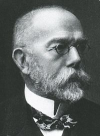
-
Julius Petri was a German microbiologist whose name is perhaps more famously known for the Petri dish, the shallow plate he created for growing and studying bacteria.
-
142.Julius von Sachs
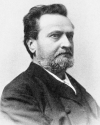
-
Many claim that it is extremely rare to find an area of botany that Julius von Sachs didn't influence in one way or another. His works are numerous, varied, and spread far and wide within this field of science. An early interest in natural history soon morphed into a fascination with plants; how they germinate, how they vary, how they grow and live.
-
143.Dr Kary Mullis
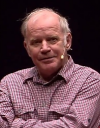
-
Kary Mullis is an American biochemist who won the 1993 Nobel Prize in Chemistry for inventing the polymerase chain reaction (PCR) technique. PCR is used to make multiple copies of specific sections of DNA, and is now an indispensable technique in labs across the world and has played a key role in countless fundamental discoveries.
-
144.Professor Katherine Esau
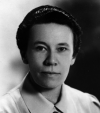
-
Katherine Esau was a Russian-born American botanist who helped to extensively broaden our understanding of plant structure and function. She became a world renowned scientist though her journey to get there was a difficult one.
-
145.Kathleen Carpenter
-
Kathleen Carpenter was a Welsh ecologist in the early 20th century. Her research showed how lead mining was affecting fish species in surrounding rivers by draining through the soil.
-
146.Dame Kathleen Lonsdale
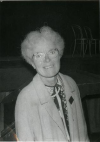
-
Dame Kathleen Lonsdale had a major influence on the development of X-ray crystallography and related fields in chemistry and physics. She was one of the first two women to be elected to the Royal Society and she was also a campaigner for prison reform.
-
147.Dr Kathleen Mary Drew-Baker
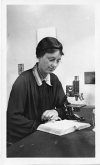
-
Kathleen Drew-Baker was a truly remarkable scientist and her work on edible seaweed helped to establish the Japanese ‘nori’ industry. She is celebrated in Japan, but relatively unknown in the UK.
-
148.Professor Keith Campbell
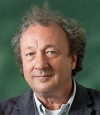
-
The passionate interest of British geneticist Keith Campbell in cellular growth and differentiation led to the birth of Dolly, the world’s most famous sheep.
-
149.Sir Kenneth Mather
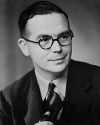
-
Kenneth Mather was one of the founders of the post-war developments in genetics. His work helped to explain why we are the height and weight we are, with the development of his polygenic inheritance theory.
-
150.Sir Konrad Lorenz
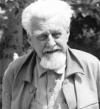
-
Sir Konrad Lorenz was a German-born British biochemist who is considered to be the founder of modern ethology, the study of animal behaviour. He helped to contribute to the understanding of how behavioural patterns may be traced to an evolutionary past, and is known for his work on aggression. Lorenz was awarded a Nobel Prize for Physiology or Medicine with fellow animal behaviourists Karl von Frisch and Nikolaas Tinbergen in 1973.
-
151.Leonard Tesch
-
The Amateur Entomologists Society was founded in 1935 by Leonard Tesch and it was originally called The Entomological Exchange & Correspondence Club. The first journal was released in August 1935.
-
152.Linda Buck

-
Linda Buck has won the Nobel Prize, along with Richard Axel, for their discoveries concerning the olfactory system.
-
153.Linus Carl Pauling
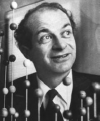
-
It’s not every day that someone can say they founded both quantum mechanics and molecular biology, but this was a reality for Linus Pauling. Not only that, he is also the only person to win two unshared Nobel Prizes (the Nobel Peace Prize and the Nobel Prize in Chemistry). Alongside Marie Curie, he is one of only two people to win it in two different fields.
-
154.Louis Pasteur
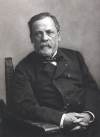
-
Louis Pasteur was a French chemist and biologist whose discoveries contributed to establishing the germ theory of disease and he invented the process of pasteurisation. He contributed to science, technology and medicine, pioneering the study of molecular asymmetry, developing pasteurisation and developing vaccines against anthrax and rabies.
-
155.Dr Luc Montagnier

-
Dr Luc Montagnier is a French virologist and Nobel laureate who most notably in 1983 discovered the HIV virus that is responsible for AIDS.
-
156.Lynn Margulis
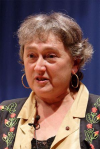
-
Lynn Margulis was known for her scientific theory on the evolution and origin of complex cells, called symbiogenesis or endosymbiotic theory.
-
157.Professor Marcel Jaspars

-
Marcel Jaspars is an academic currently at the University of Aberdeen, who explores the biological role of natural products found in sea organisms as they could be useful for new antibiotics and other drugs.
-
158.Margaret Higgins Sanger
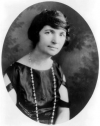
-
Margaret Higgins Sanger was an American birth control activist, sex educator and nurse. She popularised the term birth control and she opened the first birth control clinic in America. She also established the organisation which evolved into the Planned Parenthood Federation of America.
-
159.Margaret Murie
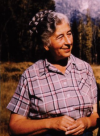
-
Margaret ‘Mardy’ Murie was a naturalist and writer, and one of the first women to take a leading role in America’s conservation movement. She played a key role in establishing the Arctic National Wildlife Refuge in Alaska, for which she became known as ‘the grandmother of the conservation movement’.
-
160.Marjory Stephenson
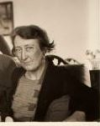
-
Marjory Stephenson was one of the first women to be elected a Fellow of the Royal Society. Her work was one of the first examples of adaptive enzymes and her book, Bacterial Metabolism, became the standard textbook for generations of microbiologists.



